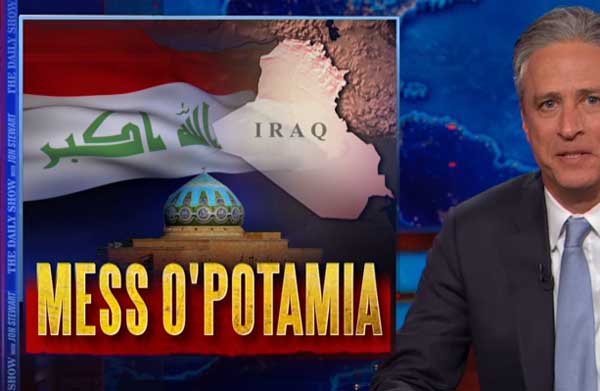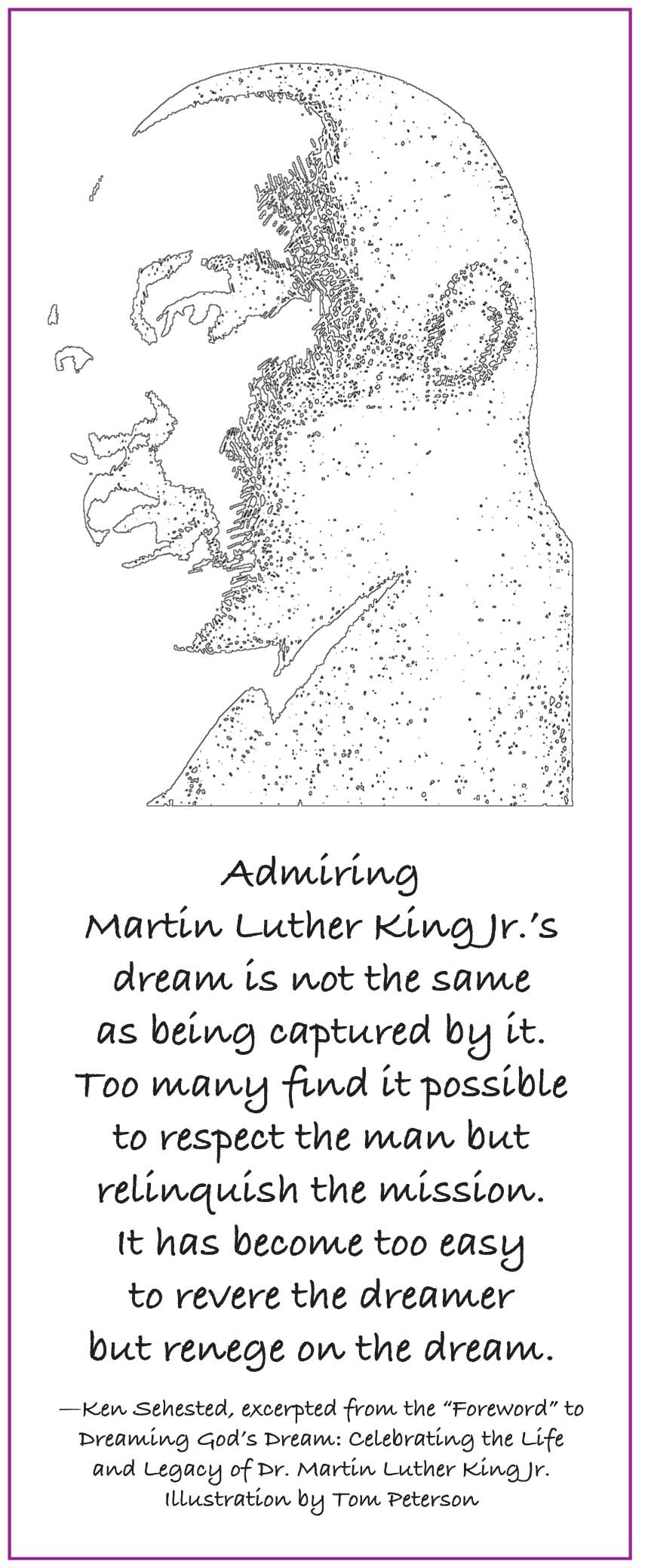¶ “Been a hard Advent for me spiritually, between the police misconduct & deaths, the massacre in Peshawar, and the details about our torturing people. I think we should require that every nativity scene should have a Herod in it, don’t you?” North Carolina pastor Michael Usey wrote this to Dr. Bill Leonard, church history professor at Wake Forest Divinity School, who expanded the commentary: “Inserting [Herod] into every nativity scene might restrain our sentimentalized, ‘the little Lord Jesus no crying he makes’ rendering of the Christmas story, and compel an annual reflection on the ‘slaughter of the innocents,’ then and now, in ancient Scripture and on contemporary social networks. Indeed, the Times’ ‘Year in Pictures’ for Dec. 28 included a photo of sobbing Pakistani women ‘refusing consolation’ at the coffin of Mohammed Ali Khan, a 15-year-old Peshawar victim. —“Epiphanic moments,” Baptist News Global Today
Pictured at right: Feast of the Holy Innocents. The Massacre of the Innocents by Lucas Cranach the Elder (c. 1515), National Museum in Warsaw.
¶ In case there’s still a question. The gulf between rich and poor people in America has hit a new record. An analysis released 18 December by Pew Research Center finds that the wealth gap between the top 21 percent of families and everyone else is the widest since the Federal Reserve began collecting such income data 30 years ago. Last year, the median wealth of upper-income families ($639,400) was almost seven times that of middle-income families and nearly 70 times that of lower-income families.
The findings follow another Pew analysis published last week which finds that U.S. wealth inequalities along racial lines have dramatically worsened since the Great Recession, with the gap between white and black people at its highest in 25 years. According to that study, which also looks at Federal Reserve data, in 2013 white household wealth was 13 times that of black households and 10 times that of Hispanic households. —Wealth Gap Between Rich and Poor Americans Highest on Record, Sarah Lazare, Common Dreams
¶ 2014 has been a gob-smack to a nation thinking substantial progress was being made on racial and gender justice—mostly, I suspect, because we still don’t understand the difference between personal bigotry and structural injustice. Civil discourse is rarely punctuated by use of the “N” word for African Americans or the “B” word for women. Yet sexual assaults against women have crowded news headlines, and we’ve learned that some 400,000 “rape kits”—collections of DNA evidence from victims—are waiting, sometimes for many years, to be processed. In my home county, the Humane Society (God bless them) operates on an annual budget of $1.8 million. The women’s shelter, providing refuge for victims of domestic abuse (and their children), has a budget less than half that amount. On black-white structural disparity, see the statistics above.
¶ Not so fast. When the US-led International Security Assistance Force (ISAF) formally lowered its flag in Afghanistan on 28 December, US President Barack Obama issued a statement declaring “a milestone for our country,” adding “the longest war in American history is coming to a responsible conclusion.” Back in the spring, Obama announced in his West Point commencement speech that “You are the first class to graduate since 9/11 who may not be sent into combat in Iraq or Afghanistan.” But more than 10,000 US troops will remain in Afghanistan for the foreseeable future. US troop levels in Iraq are being doubled; and air strikes have been taking place against ISIS forces in northern Iraq and Syria.
¶ Syria has become the fourteenth country in the Islamic world that US forces have invaded or occupied or bombed since 1980 (not counting a predominantly Muslim region of the Philippines): Iran (1980, 1987-1988), Libya (1981, 1986, 1989, 2011), Lebanon (1983), Kuwait (1991), Iraq (1991-2011, 2014-), Somalia (1992-1993, 2007-), Bosnia (1995), Saudi Arabia (1991, 1996), Afghanistan (1998, 2001-), Sudan (1998), Kosovo (1999), Yemen (2000, 2002-), Pakistan (2004-) and now Syria. —Andrew J. Bacevich, retired US Army colonel, “Even if we defeat the Islamic State, we’ll still lose the bigger war,” The Washington Post
 ¶ “I have wanted to give Iraq a lesson in democracy — because we’re experienced with it, you know. And, in democracy, after a hundred years, you have to let your slaves go. And, after a hundred and fifty years, you have to let your women vote. And, at the beginning of democracy, a bit of genocide and ethnic cleansing is quite okay. And that’s what’s going on now. “ —Novelist Kurt Vonnegut, The Daily Show interview by Jon Stewart
¶ “I have wanted to give Iraq a lesson in democracy — because we’re experienced with it, you know. And, in democracy, after a hundred years, you have to let your slaves go. And, after a hundred and fifty years, you have to let your women vote. And, at the beginning of democracy, a bit of genocide and ethnic cleansing is quite okay. And that’s what’s going on now. “ —Novelist Kurt Vonnegut, The Daily Show interview by Jon Stewart
¶ “I think we’re looking at kind of a 30-year war.” —President Obama’s former Secretary of Defense Leon Panetta, in an October 2014 USAToday interview shortly before the release of his new book, Worthy Fights: A Memoir of Leadership in War and Peace
¶ “The American people and the governing class have accepted that war has become a permanent condition.” —Andrew J. Bacevich, retired US Army colonel, who’s own son was killed in Iraq in 2007, The Washington Post
¶ “Good grief!” Why nations do the thing they do, writ small. Prophecy from “Peanuts” cartoon characters: Charlie Brown comes in to find his sister Sally carrying her clothes into his room. “What’s going on here?” he asks.
“Big Brother!” she responds. I thought you went to camp.”
“I only went over to the mall. I’m gone for thirty minutes, and you start moving your stuff into my room?!”
“That’s my new philosophy,” Sally says. ‘If you see a room you like, move into it.’”
¶ Bitter news. A mom shopping at a Walmart store in Idaho was killed when her toddler, sitting in the shopping cart, reached into her mom’s purse and accidentally pulled the trigger of a handgun.
This story is especially vivid for personal reasons. When I was four, visiting my sharecropper grandparents’ farm, I curiously wandered into a bedroom, then into a closet, spied a rifle in the corner, cocked the hammer and pulled the trigger. The bullet ricocheted off the ceiling and grazed the leg of my Aunt Wilma who was napping on the bed.
¶ Better news. “In December Governor Cuomo banned fracking in New York state, citing hazards to health, drinking water, and climate stability.” —see Yes! Magazine’s “10 Ways Human Rights and Democracy Won in 2014” for more hopeful news
¶ There’s a pattern here. “The world needs to know the plight of the little people who are walked upon like grass.” —James Foley, freelance journalist, to his pastor, Rev. Paul Gousse, prior to returning to the Middle East in 2012. Kidnapped in northern Syria in November 2012, ISIS released a video of his beheading on 19 August 2014
-
“Isn’t there anything you understand? It’s from the ash heap God is seen. Always! Always from the ashes.” —Archibald MacLeish in Job
-
“It remains an experience of incomparable value that we have for once learnt to see the great events of world history from below, from the perspective of the outcasts, the suspects, the maltreated, the powerless, the oppressed and reviled, in short from the perspective of the suffering.” —Dietrich Bonhoeffer, Letters and Papers from Prison
-
"I want to stay as close to the edge as I can. . . . Out on the edge, you can see all kinds of things you can't see from the center." —Ed Finnerty, character in Kurt Vonnegut’s novel, Piano Player
 ¶ Language abuse. “WORLD PEACE IS GOOD.” [text projected over photo of earth from space; then, below, comes the next line] “Finding a stock at 5 that goes to 200 is better.” —ad for stock brokerage firm
¶ Language abuse. “WORLD PEACE IS GOOD.” [text projected over photo of earth from space; then, below, comes the next line] “Finding a stock at 5 that goes to 200 is better.” —ad for stock brokerage firm
¶ Ethicist Willis Jenkins “believes we stand little chance of significantly addressing a problem like climate change by simply being the moral voice or trying to change someone’s worldview. He writes in The Future of Ethics that we need instead a ‘view of culture in which morality is learned in bodies, carried by practices, and formed into repertories that teach agents how to see and solve problems.’ There is more hope, then, in our liturgies, our songs and our works of charity than in any finger-wagging or attempts at the moral conversion of oil company executives.” —Ragan Sutterfield, “Prayers with feet: Faith and hope at the People’s Climate March,” Christian Century
¶ “I heard Gus Speth, the dean of forestry at Yale, say to a group of religious leaders, ‘I used to think the top environmental problems facing the world were global warming, environmental degradation and eco-system collapse, and that we scientists could fix those problems with enough science,’ Wilson recalls. ‘But I was wrong. The real problem is not those three items, but greed, selfishness and apathy. And for that we need a spiritual and cultural transformation. And we scientists don’t know how to do that. We need your help.’” —Rev. Ken Wilson, Vineyard Church, Ann Arbor, MI
¶ Speaking of transformation. The older he got, and the deeper his analysis became on the structural roots of “the giant triplets of racism, militarism and materialism,” the more frequently Martin Luther King Jr. returned to confessional language about the need to “be born again.”
¶ Benediction. Watch this brief “Prayer for the New Year” video using Ken Sehested’s poem, “Benedicere”: http://livingthequestionsonline.com/tag/ken-sehested/ (Search the “other poems” section of this site for the full version of the poem.)
©Ken Sehested, prayerandpolitiks.org. Language not otherwise identified above is that of the editor.

